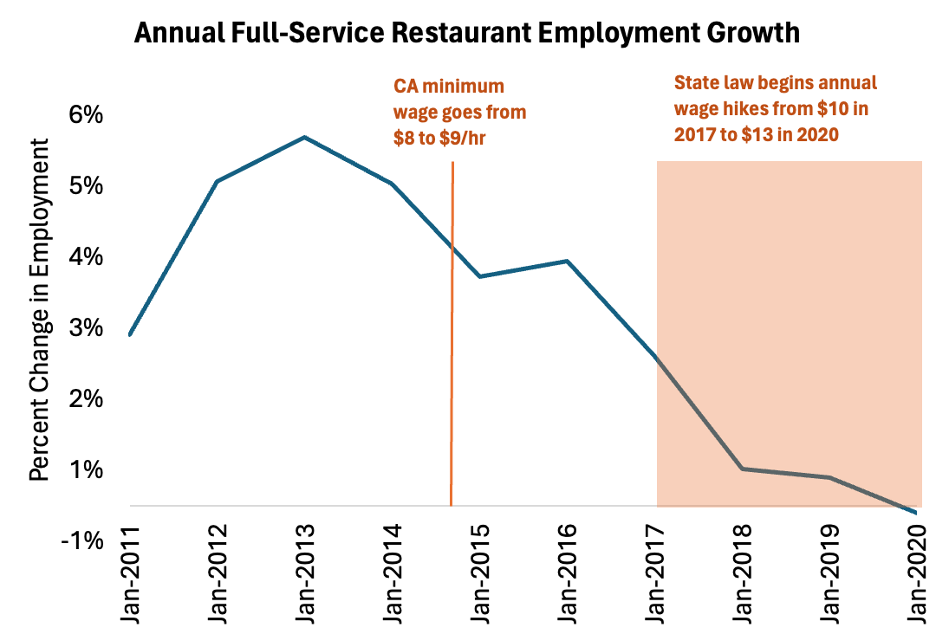This week, California Attorney General Rob Bonta appeared to settle a months-long debate over whether or not restaurants will be subject to a newly enacted law banning “junk fees.” Bonta’s office said automatic service charges on restaurant checks would not be permitted under the law in a statement to the San Francisco Chronicle. (The original sponsors of the law previously stated restaurants and service charges would not be subject to the ban.)
Service charges have been increasingly common tools aimed at keeping restaurants afloat and able to pay the higher minimum wages, amid rapidly rising state and local minimum wage requirements.
Since the state began annual wage hikes up to $16.50 per hour starting in 2017, and localities raised wages even higher, California restaurants have suffered significant losses. Now this tool will be taken away from restaurants, causing further damage to the industry and its employees.
Service charges typically show up in markets where minimum wages are high, and laws have eliminated tip credits, which allow restaurants to count tips toward the minimum wage requirement. It’s a common adaptation for restaurants that are finding it increasingly difficult to survive in high-wage areas, such as Los Angeles, Chicago, and Washington, D.C.
Now California is taking away restaurants’ inevitable adjustment mechanism for its own bad wage law.
Full-service restaurants have been on the decline:
- Since California’s most recent state wage law was implemented in 2017, to date full-service restaurant jobs have fallen by -5.7%. (Total private employment rose 8.8% during this period.)
- Prior to the state wage hikes implemented in 2017, California’s full-service restaurant industry increased employment by 28.4% since 2010, doubling total private employment growth in the same period (19.7%).

retrieved from the Federal Reserve Bank of St. Louis.

- Prior to pandemic losses, California’s full-service restaurants were already suffering declines due to wage hikes beginning in 2014 and 2017, as well as local minimum wages beyond the state rate.
- From 2017 to January 2020, California’s full-service restaurant employment growth rate plunged from averaging 4.1% growth from before the 2017 state wage hike law, to averaging just 0.7% growth from 2017 to January 2020, with a loss of -0.1% (almost 700 lost jobs) in January 2020 (prior to the pandemic shutdowns beginning in Spring 2020).


With mounting mandates including stacked state and local wage hikes, a newly-enacted fast-food $20 minimum wage that activists are pushing to make statewide, and other regulations, California’s restaurants have the odds stacked against them. One restaurateur called her city of San Francisco “one of the toughest places to run a restaurant.”
California lawmakers should think twice before implementing more regulations governing how businesses adapt to their misguided wage laws.
